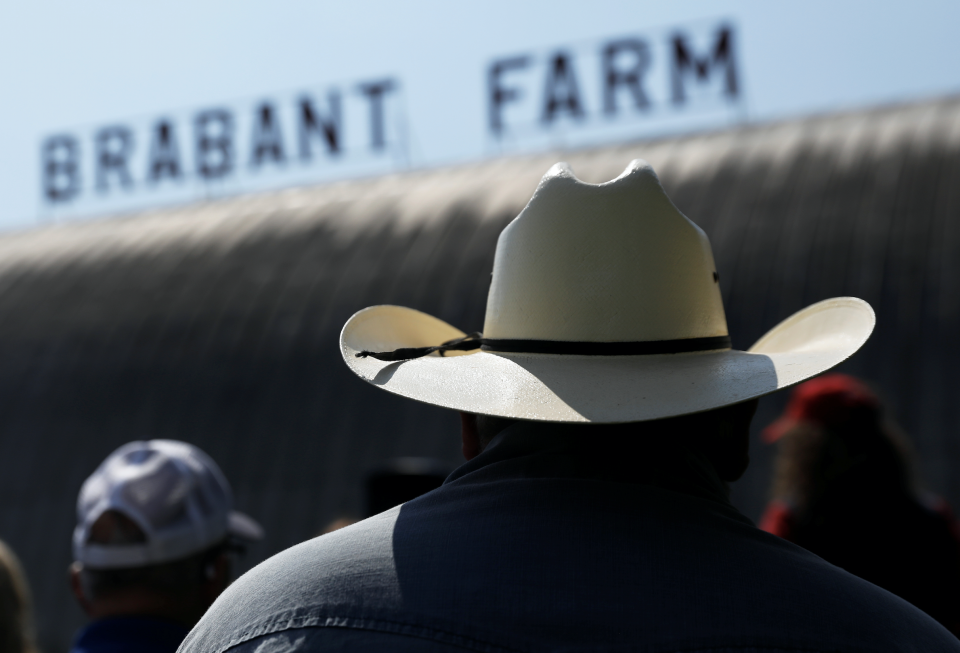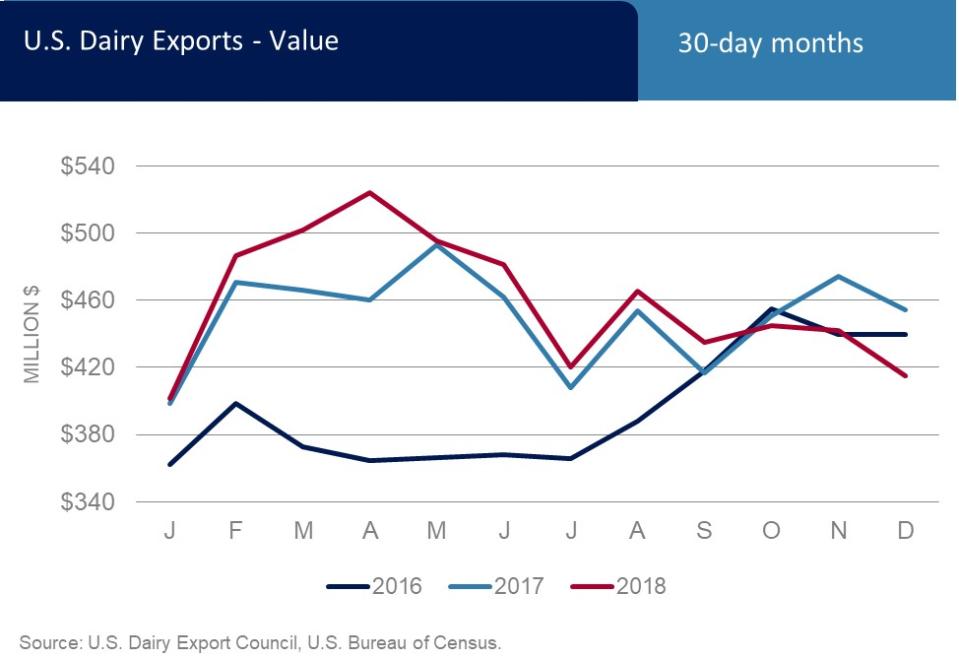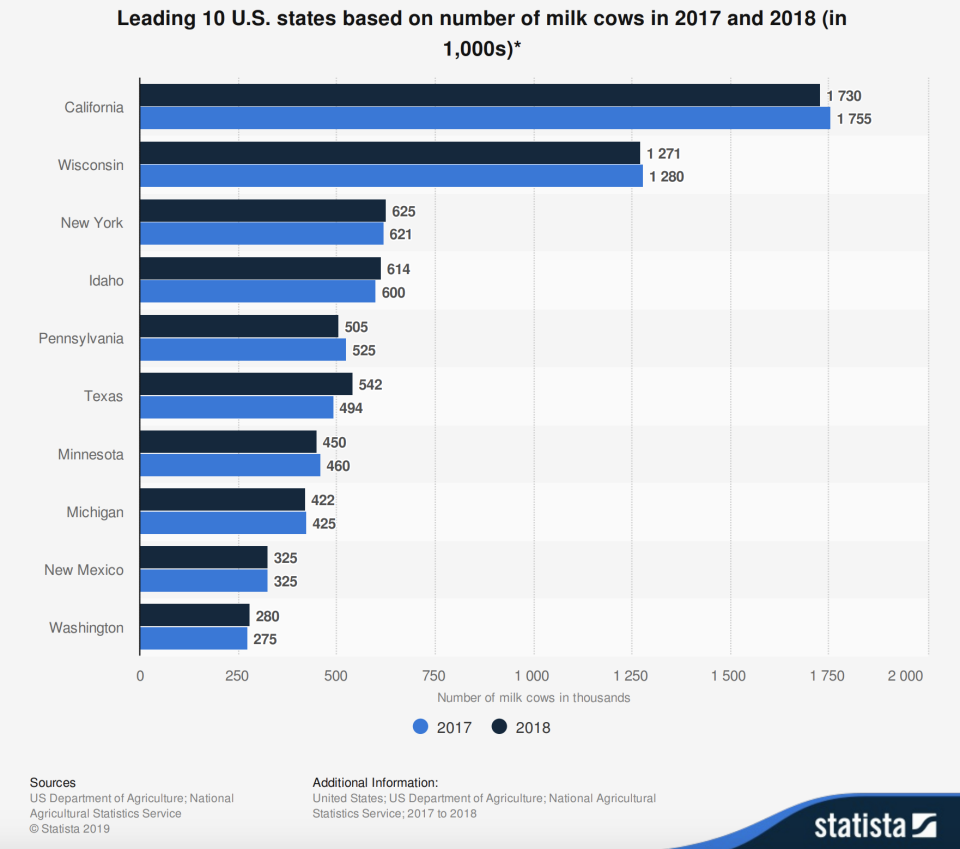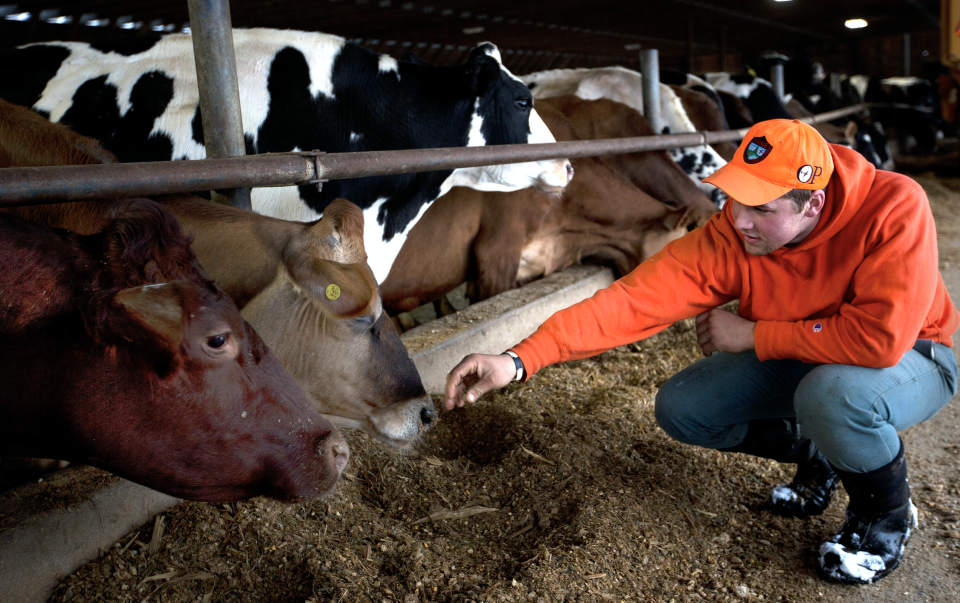'The bleeding hasn't stopped yet' for U.S. dairy farmers
As U.S.-China trade tensions continue and the United States-Mexico-Canada Agreement (USMCA) awaits ratification, American dairy farmers are hurting.
“It’s not been easy,” Patty Edelburg, vice president of the National Farmers Union, told Yahoo Finance. “We’ve lost a lot of farms in Wisconsin. Last year, we’ve lost close to 7,000 farms. We see the numbers haven’t stopped. The number of farm bankruptcies and the number of farm sell-outs in Wisconsin just hasn’t stopped. The bleeding hasn’t stopped yet.”
Total U.S. dairy exports have been down since trade tensions ramped up over the last year: As of June 2019, total exports were down 8.1% year-to-date compared to 2018, according to data provided to Yahoo Finance by U.S. Dairy Export Council, and exports to China dropped by over 7%.
“Since the tariffs were first imposed, U.S. dairy product exports have plummeted 43%,” a recent note from Wells Fargo Securities Economics Group stated. “With exports down so sharply, many farms have run into trouble.”

‘Wisconsin suffered the most bankruptcies’
Wells Fargo noted that “Wisconsin suffered the most bankruptcies and dairy losses from the trade war.” Farmers who spoke with Yahoo Finance were feeling the pain.
“It doesn’t take a huge percent to change the market,” Edelburg said. “If we lose 1% of our market, it could drop the milk price down a couple dollars. It doesn’t take long to see a fluctuation in price when it comes to any type of trade.”
Wayne Gajewski, a Wisconsin dairy farmer, said that “times have progressively gotten worse” over the last three to four years. To him, though, reaching a resolution with China on trade is just as important as getting the USMCA ratified.
“They’re both part of the full picture,” Gajewski said, although he noted that the USMCA is more in focus due to the “big, close trading partners” involved. “It would be nice if we can get that ratified because I think if you totally eliminate those trade barriers, it’ll benefit all three of our countries.”

Edelburg noted that they have lost some markets already in Mexico and Canada.
“As soon as the president had made the comment he was going to start putting tariffs on things going to Mexico, that was when we saw the milk price jump the worst,” Edelburg said. “We lost a lot of milk. It dropped $0.50 in no time. It’s amazing how $0.50 doesn’t sound like a lot, but $0.50 on the dollar, it could make or break cashflow for farmers.”
According to the Office of the U.S. Trade Representative, Canada and Mexico are the “first and third largest export markets for U.S. food and agricultural products, making up 28% of total food and agricultural exports in 2017.” In doing so, the exports supported more than 325,000 American jobs.
And one of the key components of the USMCA, and why it is so important to U.S. farmers, is that it gives them more access to the Canadian dairy market.
“At this point, it would be a big help if it was ratified so that the three nations could be working together where they know what the rules are,” Gajewski said. “Until it’s ratified, things can change. I think everybody has some uncertainty.”

Trade, not aid
In the meantime, to deal with financial insecurity as a result of trade tensions, dairy farmers have been able to apply for aid through the market facilitation program through the USDA.
“We’ve seen seven months in a row of the surpluses that have been shrinking,” Edelburg said. “So that’s been helping us a lot, but it’s amazing how these trade wars, you can affect one crop and it affects 100 farmers and it doesn’t matter if you’re selling beans or dairy or corn. It’s a trickle down.”
As with other farmers who spoke with Yahoo Finance about the government aid, the dairy farmers noted that the bailouts helped.

“Is it nice? Yeah it’s nice,” Travis Clark, a Wisconsin dairy farmer, told Yahoo Finance. “It’s not going to cover what we should or could have had if the trade war wasn’t going on. You’ve probably heard this everywhere: We want trade, we don’t want aid. We would rather have that.”
He continued: “Am I going to turn it down? No, I’m going to take it. Does it help? Yes. Is it going to keep [someone] from going bankrupt? No, you have to be a better manager than that. It’s not going to save it. The aid is not going to completely save your farm.”
Adriana is an associate editor for Yahoo Finance. Follow her on Twitter @adrianambells.
READ MORE:
U.S. farmers are exasperated by latest trade war moves: 'Another nail in the coffin'
American farmers 'are in it for the long haul,' Iowa governor says about trade war
Read the latest financial and business news from Yahoo Finance
Follow Yahoo Finance on Twitter, Facebook, Instagram, Flipboard, SmartNews, LinkedIn, YouTube, and reddit.
